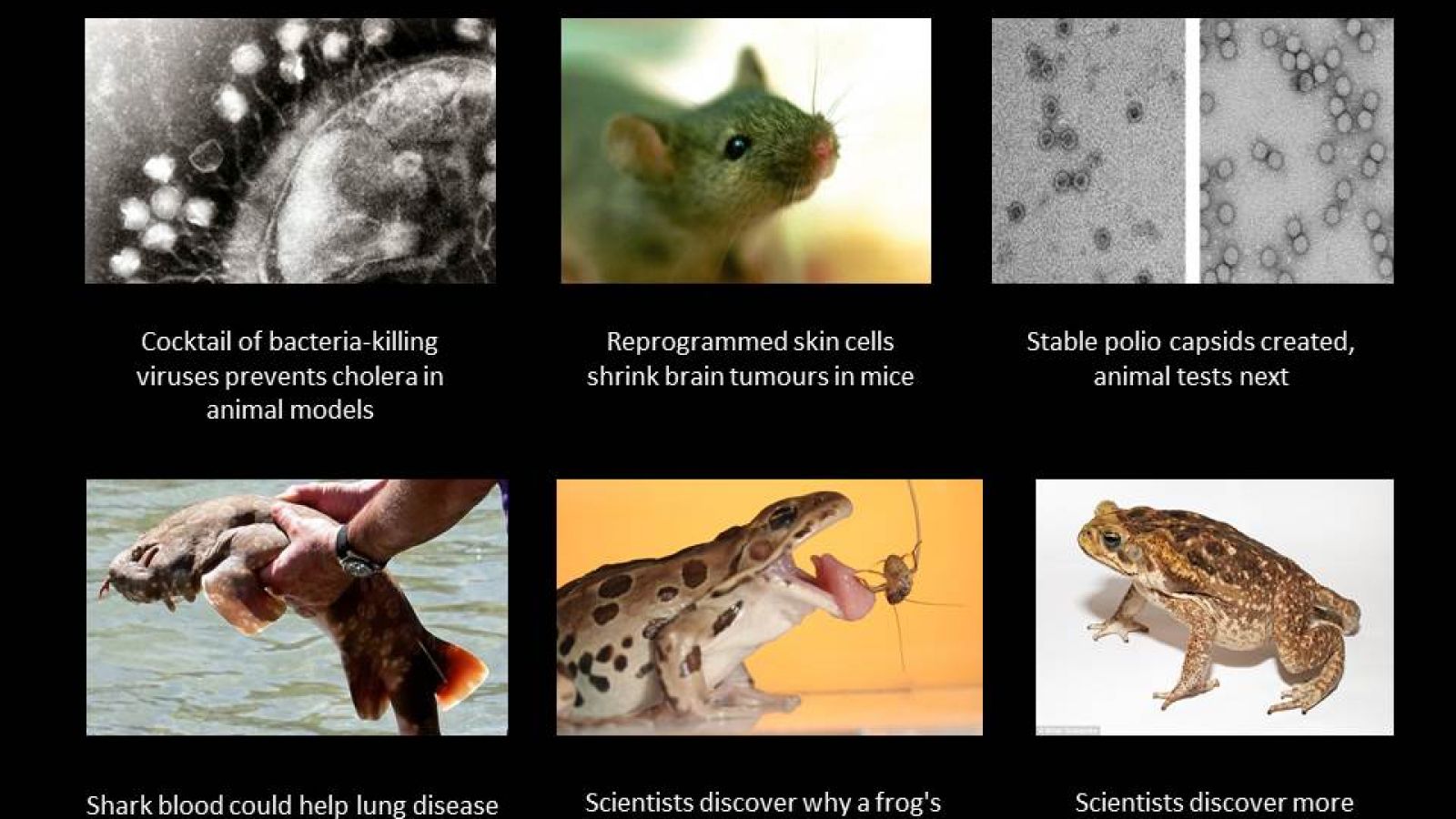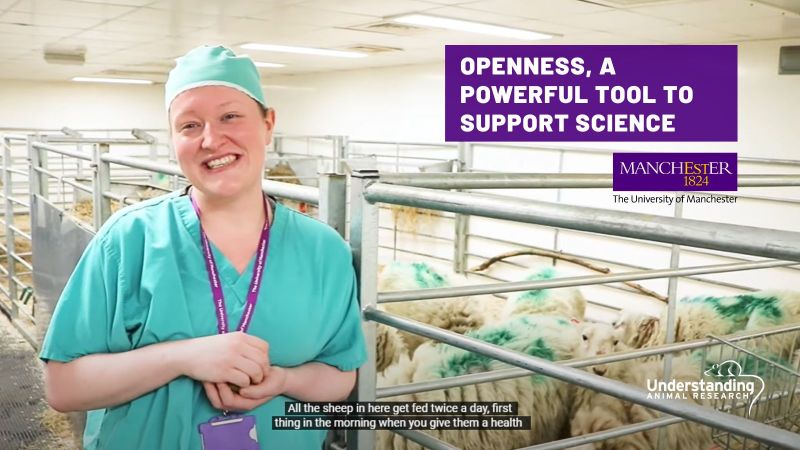Cocktail of Bacteria-Killing Viruses Prevents Cholera Infection in Animal Models
Oral administration of a cocktail of three viruses, all of which specifically kill cholera bacteria, prevents infection and cholera-like symptoms in animal model experiments.
“While phage therapy has existed for decades, our study is proof-of-principle that it can be used to protect against infection and intervene in the transmission of disease,” said senior study author Andrew Camilli
While phages that kill V. cholerae are abundant in nature, the team identified three strains that uniquely retained the ability to kill V. cholerae within the small intestine, the site of infection in humans.
Stable polio capsids created, animal tests next
Scientists have identified new ways to provide vaccines against polio, which do not require the growth of live virus for their manufacture.
Despite the success of vaccines produced from "virus-like particles" (VLPs) for hepatitis B and human papilloma viruses, poliovirus VLPs have proved to be too unstable to make practical vaccines.
Now, a research team at the University of Leeds has found a new way to modify these VLPs, also known as "empty capsids", by identifying mutations which make their structures sufficiently stable to act as vaccines.
The empty capsids change shape when warmed and become unusable as vaccines, but the mutations identified in this research prevent these damaging changes.
Using current technology, the production of vaccine requires the growth of enormous quantities of live virus, which is then chemically killed, thus presenting a dangerous security risk of virus escaping into the environment.
These stabilised VLPs are suitable as replacements for the killed poliovirus vaccines and can be produced in ways that do not require the growth of live virus.
http://www.leeds.ac.uk/news/article/3983/scientists_prove_new_approach_to_polio_vaccines_works
Reprogrammed skin cells shrink brain tumours in mice
Scientists have created personalized tumour-homing cells from adult skin cells that can shrink brain tumours to 2% to 5% of their original size in mice. Although the strategy has yet to be fully tested in people, the new method could one day give doctors a quick way to develop a custom treatment for aggressive cancers like c, which kills most human patients in 12–15 months. It only took 4 days to create the tumour-homing cells for the mice.
http://www.sciencemag.org/news/2017/02/reprogrammed-skin-cells-shrink-brain-tumors-mice
Tumor-homing cytotoxic human induced neural stem cells for cancer therapy
Healthy neural stem cells can infiltrate and help treat brain tumors because they naturally migrate toward gliomas in response to chemotactic signals released by the tumor cells. Obtaining neural stem cells from a patient can be difficult, however, and donor stem cells pose a risk of immune rejection and other safety concerns. Bagó et al. have discovered a way to avoid these risks by taking normal human skin fibroblasts and transdifferentiating them into neural stem cells. The entire process took only 4 days to complete, yielding autologous patient-derived neural stem cells. The authors engineered these stem cells to deliver two different types of therapies and demonstrated their ability to infiltrate and effectively treat brain tumors in multiple mouse models.
http://stm.sciencemag.org/content/9/375/eaah6510
A Dutch zoo has developed a 'Tinder' for orangutans in order to track mating preferences.
They have shown a female orangutan potential mates on an iPad to see if she will choose one in order to improve her mating chances.
If she seems to prefer one over another, they will choose that mate to come over from an international zoo, which could be as far away as Singapore.
The four-year experiment is called "Tinder for orangutans" and the Apenheul primate park in Apeldoorn will let 11-year-old Samboja look at potential partners from an international breeding scheme.
http://www.telegraph.co.uk/science/2017/02/01/tinder-orangutans-zoo-female-primates-choose-mate-using-tablet/
Genome editing technology, CRISPR/Cas9, used to produce bovine tuberculosis resistant cattle
Researchers from Northwest A&F University might have produced bovine tuberculosis resistant cattle using the genome editing technology, CRISPR/Cas9. Previously, a mouse gene was inserted into cattle in an attempt to boost protection against TB. Bovine TB is a risk in many countries, including parts of the UK, Africa and Asia therefore this technology could have widespread uses in agriculture. However, it is not clear what would happen if the transgenic cattle were exposed to tuberculosis in normal conditions.
http://www.bbc.co.uk/news/science-environment-38810073
Scientists discover why a frog's tongue is uniquely sticky
A recent study has revealed that a frog's tongue is uniquely sticky because frog saliva is able to switch from thin and watery to thick and sticky. This is due to frog saliva being a non-Newtonian fluid thanks to high concentrations of long-chain proteins. The researchers believe there may be practical applications for the discovery, such as reversible adhesives.
https://www.theguardian.com/science/2017/feb/01/special-spit-is-the-secret-of-uniquely-sticky-frog-tongues-study-reveals
Scientists discover harmful toxins in the skin of toads belonging to Bufonidae family
Kissing toads might not actually be a good idea. Scientists have investigated the chemicals found in members of the toad family, Bufonidae and discovered a slew of harmful toxins in their skin. The toxins are thought to protect the toads from predators but the team are hoping they can be used to create new medicines.
http://www.dailymail.co.uk/sciencetech/article-4165002/Scientists-reveal-toxins-toads-used-folk-medicine.html
Scientists manipulate neurons in the brains of mice to remove triggers for certain bad memories
Researchers at the University of Toyama have found a way to manipulate neurons in the brains of mice to remove triggers for certain bad memories. These findings could potentially led to the development of new methods to reverse post-traumatic stress.
http://www.dailymail.co.uk/sciencetech/article-4170966/Triggers-painful-memories-erased-using-LASERS.html
Shark blood could help lung disease
An antibody found in the blood of sharks has inspired a new drug which could help treat idiopathic pulmonary fibrosis (IPF), a currently incurable lung disease. The drug, AD-114, targets fibrosis-causing cells and it is hoped it can slow the progression of the disease.
http://www.bbc.co.uk/news/world-australia-38792405
Last edited: 9 March 2022 12:36




